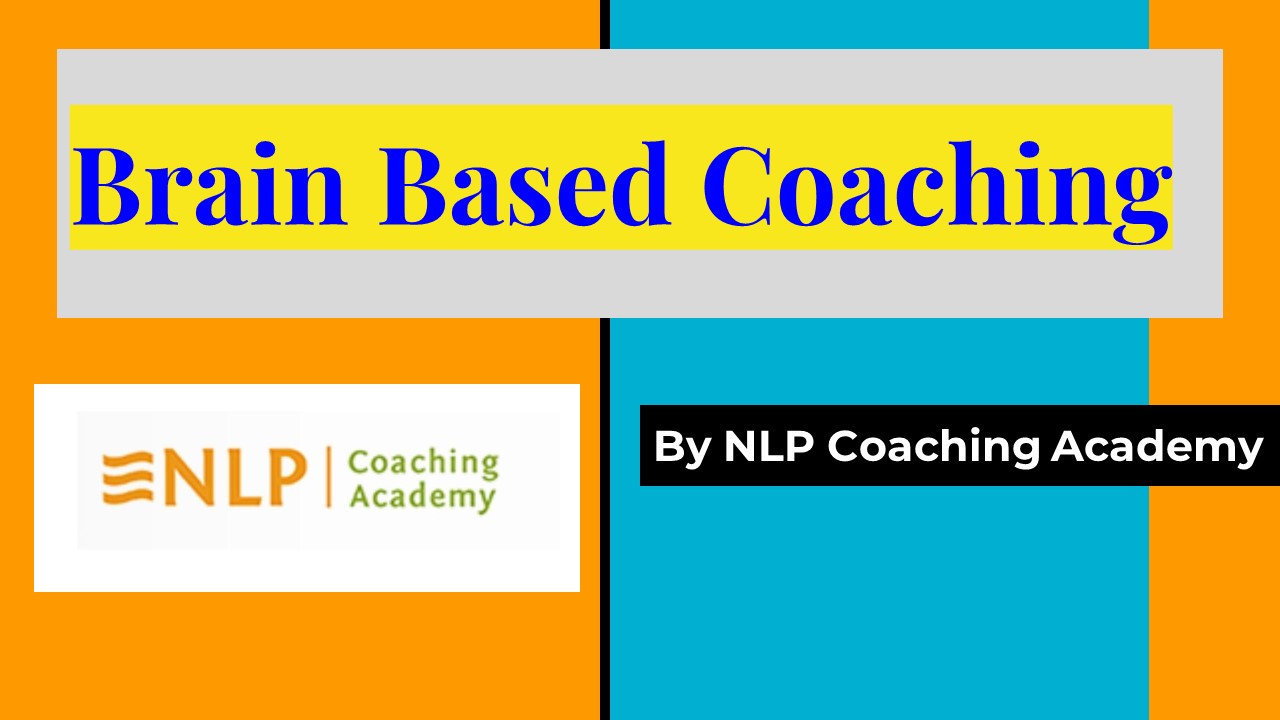Brain Based Coaching PowerPoint PPT Presentation
Title: Brain Based Coaching
1
Brain Based Coaching
- By NLP Coaching Academy
2
Introduction
- What is coaching based on the brain? How is it
different from other coaching methods? What makes
it such a good thing? And why would you pick
brain-based coaching above other possibilities
for personal growth? Attend the NLP Coaching
Academy to discover Brain Based Coaching, which
can assist you in making wise emotional
judgments. As everyone is aware, the brain
regulates all activity, both physical and
emotional. Since the behavioural portion of the
human body is controlled by neuroscience, you
should enrol in a certified course to become a
certified emotional intelligence coach and
receive coaching from an emotional intelligence
trainer.
3
Describe coaching.
What doesn't brain-based coaching consist of?
- Let's define what we mean by "coaching" to get
things started. - A person (the "coach") encourages another person
(you, the "coachee") to develop new ideas, foster
learning and self-development, and encourage
focused action in ways that are advantageous to
you, the coachee. - The term "coaching" basically refers to moving
someone from one location to another. It's about
making shifts, moving forward, and bringing about
change in the context of today.
Coaching with the brain is not consulting,
therapy, mentorship, or training. I won't be
giving you explicit instructions or performing
the action on your behalf as your coach. That
would mean abdicating your accountability as the
coachee.
4
What is coaching based on the brain?
- A coaching method known as "brain-based coaching"
has its roots in modern neuroscience, which is
the study of the brain and the rest of the
nervous system. Brain-based coaching is a novel
strategy that complements and amplifies the ideas
and practises of coaching to produce even more
potent, advantageous, and transformative changes
for the coachee using the most recent findings on
how the brain functions. - You, the coachee, won't be able to see much or
any of the science because this is a coaching
session, not a science class. But as your coach,
I will draw on my in-depth understanding of
neuroscience at every turn to create a
brain-friendly coaching environment that focuses
on thinking, helps you get off autopilot,
encourages fresh ideas and insights, takes
advantage of your brain's propensity for
hardwiring, and embeds new knowledge and
behaviour. - Thus, enabling positive transformation by first
enhancing thinking can be characterised as
brain-based coaching.
5
How and why does coaching that uses the brain
work?
- In order for brain-based coaching to be
effective, you, the coachee, must exert all of
your resources and resourcefulness in a
determined and motivated attempt to advance your
goals. It achieves this by providing an
atmosphere that encourages fresh ideas and by
giving you the room to reflect carefully on the
subjects that are most important to you in the
way that is best for you and your brain. - As a coachee, you will encounter a concentration
and attention in a coaching dialogue that helps
you to grow in self-awareness and in your
understanding of your circumstancesboth
difficulty and opportunity. You will develop new
strategies for yourself to handle problems,
deliver better outcomes, and overall accomplish
tasks more quickly.
6
What is so unique about brain-based coaching?
- Recent advancements in brain imaging technology
in the 1970s and 1980s have led to numerous
findings in neuroscientific research that reveal
many previously accepted self-improvement
approaches as mainly worthless. - These realisations lead us to the conclusion that
encouraging people to think independently is the
key to their success, improvement, and success.
This idea serves as the foundation for
brain-based coaching.
What sets brain-based coaching apart?
These realisations lead to a few distinctive
characteristics that define brain-based coaching
in practise.
7
1. Independent learning Brain-based coaching
encourages individuals to connect their own dots.
When everyone of us finds our own solutions,
learning improves. Therefore, rather than
leading, guiding, or directing people in their
learning process, the coach's responsibility is
to support them. 2. Solutions-oriented The focus
of coaching is always on solutions connecting
with the vision of where we want to go and
working methodically toward that goal. Coaching
is not about looking for issues and getting to
the bottom of their roots because doing so just
strengthens those circuits and unearths new
issues. Being solutions-oriented is far more
beneficial. 3. Test and expand yourself Our
minds enjoy being stretched and challenged. Each
coachee receives the necessary amount of stretch
from brain-based coaching to enable optimal brain
function. Specifically, to create new wiring.
8
4. Complimentary remarks Coaching is not about
calling attention to errors and mistakes it is
about attention, focus, and positive
reinforcement. It involves noticing when someone
is doing something right and praising them for
it. 5. Procedure and organisation Brain-based
coaching is a systematic method for enhancing
thinking and bringing about long-lasting
transformation. 6. Creating the coachee's
schedule The coachee's agendatheir plans for the
future, their objectives, and their
aspirationsis the only thing that receives
attention in brain-based coaching. For more
information visit us https//nlpcoach.in/emotion
al-intelligence-coach-practitioner/

